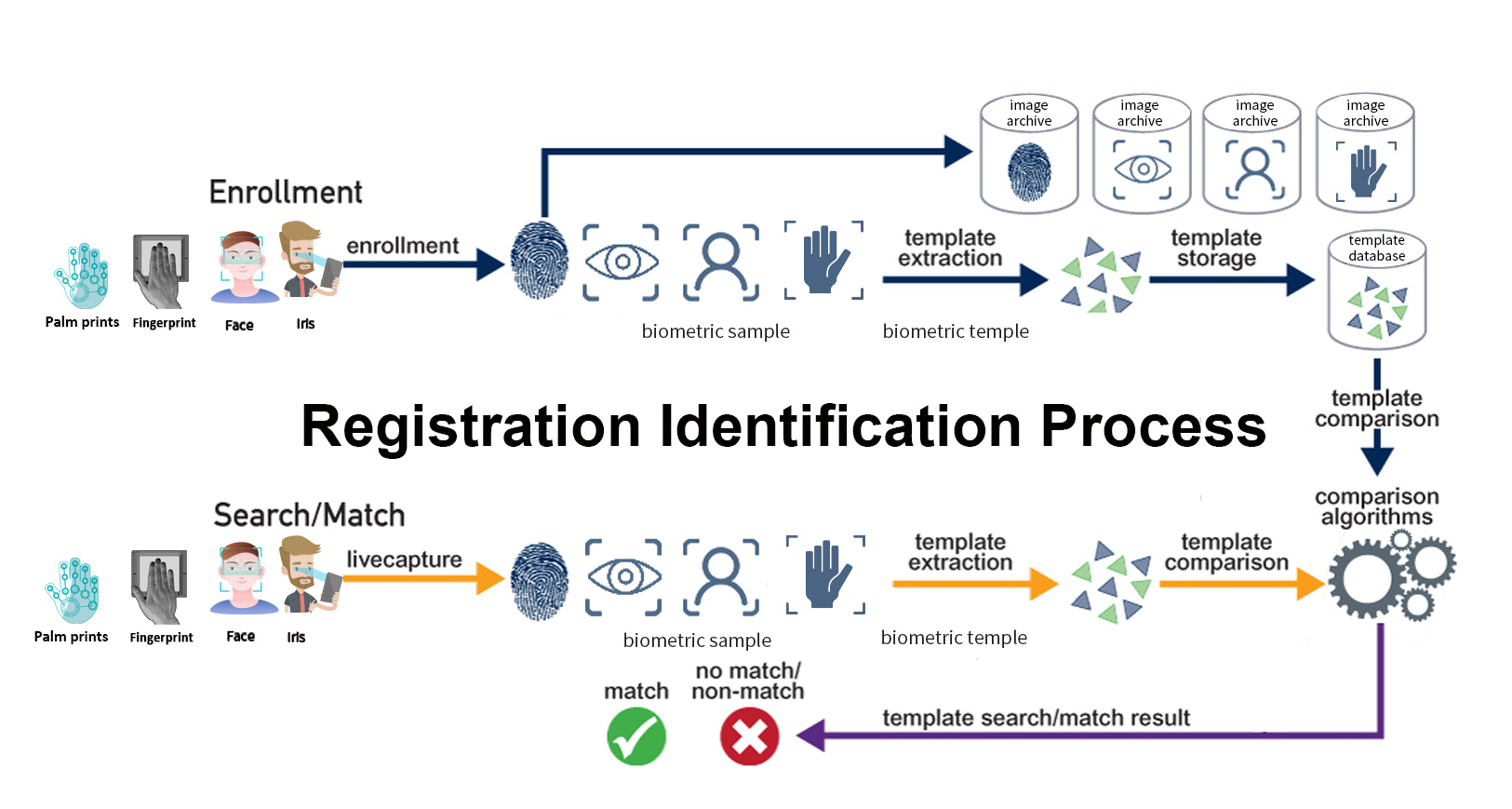Biometric Know Your Customer (KYC) solutions have emerged as a revolutionary means to verify and authenticate the identity of individuals in various industries, particularly in the financial and security sectors. KYC processes are critical for businesses and organizations to comply with regulatory requirements, mitigate fraud risks, and enhance overall security. Traditional KYC methods often involve manual verification processes that can be time-consuming, error-prone, and susceptible to fraudulent activities. Biometric KYC solutions address these challenges by incorporating cutting-edge biometric technologies to streamline and strengthen the identity verification process.
Understanding Biometric KYC:
1. Definition and Purpose:Biometric KYC refers to the use of biometric data, such as fingerprints, facial features, iris scans, voice patterns, and behavioral traits, to verify the identity of individuals during the onboarding process. The primary purpose is to establish a secure and reliable method for confirming the identity of customers, employees, or any other individuals interacting with an organization.
2. Key Components:Biometric KYC solutions typically consist of hardware and software components. The hardware includes biometric sensors or scanners, such as fingerprint readers or cameras, while the software involves sophisticated algorithms for capturing, processing, and comparing biometric data.
3. Types of Biometric Data:Various biometric modalities are utilized in KYC solutions. These include:
Fingerprint Recognition: Analyzing unique patterns in fingerprints.
Facial Recognition: Identifying individuals based on facial features.
Iris Recognition: Analyzing unique patterns in the iris of the eye.
Voice Recognition: Verifying identity through voice patterns.
Behavioral Biometrics: Analyzing patterns in typing, gait, or other behavioral traits.

Benefits of Biometric KYC Solutions:
1. Enhanced Security:Biometric data is unique to each individual, making it significantly more secure than traditional identification methods such as passwords or PINs. This uniqueness reduces the likelihood of identity theft and fraud.
2. Streamlined Onboarding:Biometric KYC solutions streamline the onboarding process by automating identity verification. This results in quicker and more efficient customer onboarding experiences, improving overall customer satisfaction.
3. Regulatory Compliance:Many industries, especially finance, are subject to strict regulatory requirements regarding identity verification. Biometric KYC solutions help organizations meet these compliance standards by providing a robust and tamper-proof method of identity verification.
4. Fraud Prevention:Biometric KYC significantly reduces the risk of identity fraud. It is challenging for malicious actors to replicate or manipulate biometric data, making it a formidable deterrent against fraudulent activities.
5. User Convenience:Biometric authentication is user-friendly and convenient. Users don’t need to remember complex passwords or carry physical identification cards. This ease of use contributes to a positive user experience.
Implementation of Biometric KYC:
1. Data Capture:The first step in implementing a biometric KYC solution is to capture the biometric data of individuals. This is done through specialized hardware such as fingerprint scanners, cameras for facial recognition, or iris scanners.
2. Data Processing:The captured biometric data is processed using advanced algorithms. This involves extracting unique features from the data and converting them into a template that can be securely stored and used for comparison.
3. Comparison and Verification:During the verification process, the stored biometric template is compared with the real-time biometric data provided by the individual. If there is a match, the identity is verified, granting access or approval.
4. Integration with Systems:Biometric KYC solutions are integrated into existing systems, such as customer databases or access control systems, to ensure a seamless and secure flow of information.
5. Continuous Monitoring:Some biometric KYC systems incorporate continuous monitoring to detect any anomalies or suspicious activities, providing an additional layer of security.
Future Trends:
1. Multimodal Biometrics:The future of biometric KYC may involve the use of multiple biometric modalities for enhanced security. Combining facial recognition with fingerprint or iris scans provides a more robust authentication process.
2. Blockchain Integration:Integrating biometric KYC with blockchain technology can enhance the security and transparency of identity verification processes, reducing the risk of data tampering or unauthorized access.
3. Artificial Intelligence (AI) Improvements:Advancements in AI will contribute to the development of more accurate and efficient biometric algorithms, improving the overall performance of biometric KYC solutions.
4. Global Adoption:As the need for secure and seamless identity verification grows globally, biometric KYC solutions are likely to see increased adoption across industries and regions.
In conclusion, biometric KYC solutions represent a significant advancement in identity verification, offering enhanced security, efficiency, and user convenience. While challenges exist, ongoing developments in technology, privacy regulations, and industry standards are addressing these issues, paving the way for a future where biometric KYC becomes a standard practice across various sectors. As organizations continue to prioritize security and regulatory compliance, biometric KYC stands out as a key enabler in achieving these objectives.
Recommended Hardward:

HFSecurity Fingerprint Scanner and Biometric Tablet
